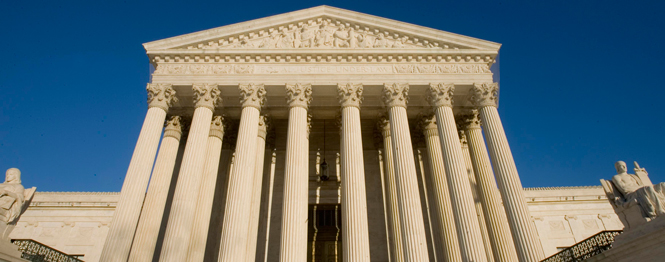The Supreme Court is currently considering the intersection of two federal statutes governing workplace disputes. The first, the Federal Arbitration Act, dictates that arbitration agreements “shall be valid, irrevocable and enforceable.” The second, the National Labor Relations Act, grants workers the right to engage in “concerted activities” for “mutual aid or protection,” and makes it an unfair labor practice for employers to “interfere with, restrain, or coerce employees” in the exercise of this right. These two statutory directives have come into conflict through employers’ increasingly-common practice of requiring workers to agree to individual arbitration of all work-related claims—barring them from pursuing class or collective action. The court is tasked with reconciling the statutes in three consolidated cases: Epic System v. Lewis, Ernst & Young v. Morris, and National Relations Board v. Murphy Oil USA.
In each of the three cases, employees were required to enter into an arbitration agreement as a condition of employment. The arbitration agreements broadly required that any disputes be resolved through binding individual arbitration, rather than in court. The arbitration agreements also waived the employees’ right to participate in any class, collective, or representative proceeding.


 U.S. Supreme Court.
U.S. Supreme Court.




